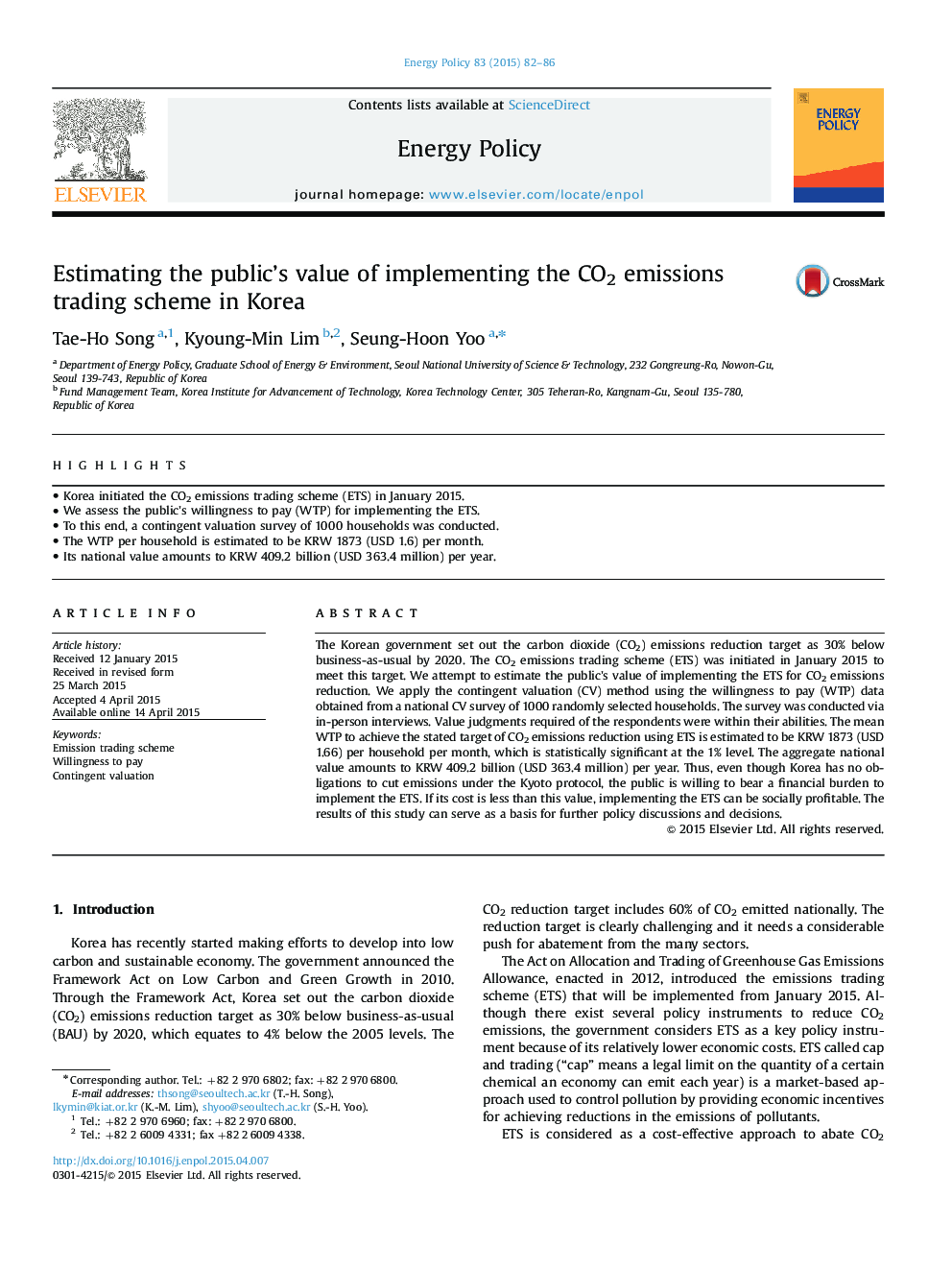| Article ID | Journal | Published Year | Pages | File Type |
|---|---|---|---|---|
| 995304 | Energy Policy | 2015 | 5 Pages |
•Korea initiated the CO2 emissions trading scheme (ETS) in January 2015.•We assess the public's willingness to pay (WTP) for implementing the ETS.•To this end, a contingent valuation survey of 1000 households was conducted.•The WTP per household is estimated to be KRW 1873 (USD 1.6) per month.•Its national value amounts to KRW 409.2 billion (USD 363.4 million) per year.
The Korean government set out the carbon dioxide (CO2) emissions reduction target as 30% below business-as-usual by 2020. The CO2 emissions trading scheme (ETS) was initiated in January 2015 to meet this target. We attempt to estimate the public's value of implementing the ETS for CO2 emissions reduction. We apply the contingent valuation (CV) method using the willingness to pay (WTP) data obtained from a national CV survey of 1000 randomly selected households. The survey was conducted via in-person interviews. Value judgments required of the respondents were within their abilities. The mean WTP to achieve the stated target of CO2 emissions reduction using ETS is estimated to be KRW 1873 (USD 1.66) per household per month, which is statistically significant at the 1% level. The aggregate national value amounts to KRW 409.2 billion (USD 363.4 million) per year. Thus, even though Korea has no obligations to cut emissions under the Kyoto protocol, the public is willing to bear a financial burden to implement the ETS. If its cost is less than this value, implementing the ETS can be socially profitable. The results of this study can serve as a basis for further policy discussions and decisions.
